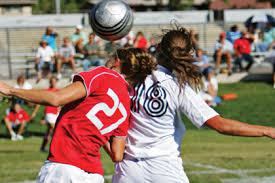
Teens who suffer from sports concussions may recover more fully when they receive coordinated care that addresses both physical and mental health symptoms, a small study suggests.
“When concussion symptoms do not resolve within a month following injury, parents may need to be more proactive in seeking additional help, and may find that working with a psychologist or therapist with expertise in cognitive-behavioral therapy to be helpful, in addition to their medical treatment,” said lead study author Carolyn McCarty of Seattle Children’s Hospital and the University of Washington.
“It is also important to screen for depression among these youth, because concussion and depression tend to co-occur frequently,” McCarty added by email.
Typically, doctors take a more passive “watchful waiting” approach to post-concussion care, offering guidance about when and how to gradually return to sports and other activities and advice on symptoms that could require additional treatment, McCarty and colleagues note in the journal Pediatrics.
As an alternative, researchers tested an active approach to treatment where case managers were assigned to each teen to give patients and families strategies to manage and reduce their symptoms through behavioral and psychological approaches, including relaxation, activation, guided imagery and guidance about sleep.
Care managers also worked with people at school, various medical providers and coaches to ensure that everyone involved in the child’s daily routine and sports activities was on the same page.
All of the youth in the study were from 11 to 17 years old and had persistent symptoms at least one month after experiencing a sports concussion.
Researchers randomly assigned 25 teens to receive collaborative care while a control group of 24 participants received traditional care.
All patients in the study displayed considerable symptom reduction over six months, but patients who received collaborative care continued to make symptom reduction gains between three and six months, while the control group receiving usual care hit a plateau.
Slightly more than half of the kids in the study had at least one prior concussion, and 38 percent had a history of depression.
Among the kids assigned to collaborative care, 8 percent saw a psychiatrist, 33 percent reported visits with a mental health professional, 58 percent sought treatment from their primary care physician and 21 percent saw another doctor.
After six months, about 42 percent of kids in the control group reported high levels of post-concussion symptoms, compared with just 13 percent of the teens in the collaborative care group.
Mood disorders are common after concussions, and collaborative care appeared to make a bigger dent in depression symptoms than the usual approach, the study also found.
Overall, 41 percent of study participants reported being depressed.
With collaborative care, 78 percent of depressed patients reduced their symptoms by at least half by the end of the study, compared with just 46 percent of the youth who received standard care.
The study was small, and many of the participants were white and female, which might limit how much the results would apply to other youth athletes, the authors note.
Still, the findings suggest the collaborative care model is worth exploring for post-concussion care and that more research might help pinpoint the best way to apply this approach for a wider variety of youth, the authors conclude.
“As is the case with adults, many teens who are treated for concussion do not receive an efficient and comprehensive approach that monitors and addresses both physical and behavioral symptoms and that coordinates care with their primary care provider,” said Dr. Jesse Fann, a researcher at the University of Washington in Seattle who wasn’t involved in the study.
“As a result, care can be fragmented and ineffective,” Fann added by email.
The biggest drawback to collaborative care may be that in many places, it won’t be available, said Dr. Laura Purcell, a sports medicine researcher at the McMaster University in Hamilton, Canada, who wasn’t involved in the study.
“It may require seeing specialists individually for specific symptoms such as neurologists for prolonged headaches, psychiatrists for behavioral symptoms, sleep specialists for sleep disturbances and school guidance counselors for help with academic schedules and accommodations,” Purcell said by email.
Source: Reuters
 FR
FR EN
EN AR
AR








